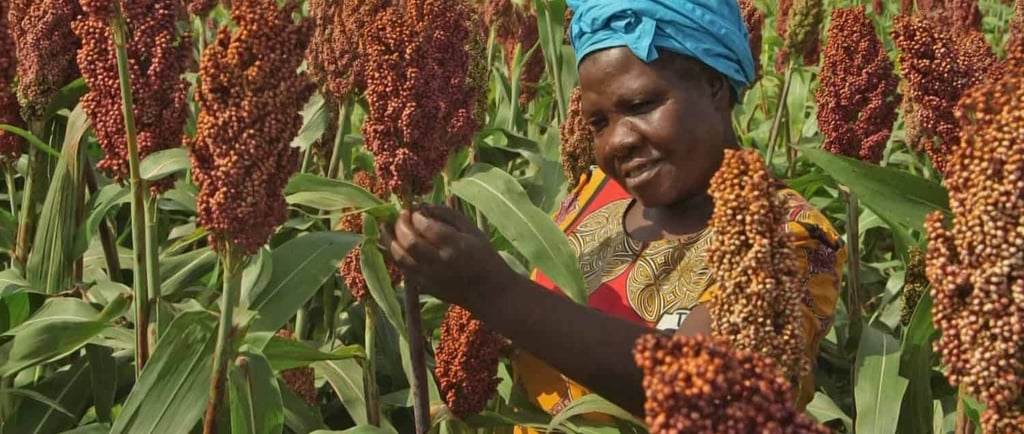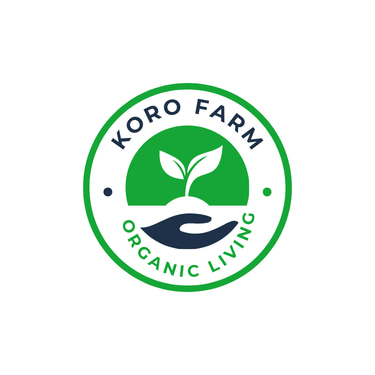Preserving Nature’s Heritage
Original seeds, also known as heirloom or traditional seeds, are the foundation of natural agriculture. These seeds represent the unaltered genetic heritage of plants that have been cultivated for centuries, passed down from generation to generation by farmers and indigenous communities. In this blog, we will dive deeper into the importance of original seeds, their benefits, and the crucial role they play in sustainable farming and food security.
Alfred Okello
2/16/20244 min read


Original seeds, also known as heirloom or traditional seeds, are the foundation of natural agriculture. These seeds represent the unaltered genetic heritage of plants that have been cultivated for centuries, passed down from generation to generation by farmers and indigenous communities. In this blog, we will dive deeper into the importance of original seeds, their benefits, and the crucial role they play in sustainable farming and food security.
What Are Original Seeds?
Original seeds are naturally occurring seeds that have not been genetically modified or scientifically altered. They are open-pollinated, meaning they rely on natural processes like wind, insects, or birds for pollination. Farmers can save and replant these seeds each season, maintaining a continuous cycle of growth and reproduction.
These seeds are often referred to as “heirloom” because of their long history of cultivation and use. Each variety of heirloom seeds has been carefully nurtured and preserved for its unique characteristics, flavor, and adaptability to local environments. This heritage makes them invaluable for maintaining plant biodiversity and preserving cultural traditions.
The Benefits of Using Original Seeds
Relatability and Seed Sovereignty One of the greatest advantages of original seeds is their ability to be saved and replanted year after year. This practice, known as seed saving, allows farmers to maintain independence and reduce reliance on external seed suppliers. By saving seeds, farmers gain seed sovereignty, which ensures that they control their farming resources and do not need to purchase seeds each season—a vital aspect of sustainable agriculture.
Biodiversity Preservation Original seeds contribute to preserving the planet's biodiversity. Modern industrial agriculture tends to favour a few select crop varieties, leading to a reduction in genetic diversity. This creates vulnerability in food systems, as crops become more susceptible to pests, diseases, and climate changes. In contrast, original seeds support a wide variety of plant species, each adapted to different climates, soils, and conditions. This rich biodiversity is essential for ecosystem resilience and helps ensure food security in the face of environmental changes.
Adaptation to Local Environments Heirloom seeds have naturally adapted to local growing conditions over many generations. They are often more resilient to the specific climates, pests, and diseases of their native regions. Unlike genetically modified seeds or hybrids, which are designed for universal traits, original seeds offer localized solutions that are better suited to organic farming systems. This natural adaptation also means that farmers using original seeds often need fewer chemical inputs, such as synthetic fertilizers and pesticides.
Superior Flavour and Nutritional Value Many heirloom seed varieties are prized for their exceptional flavor, texture, and colour. Traditional farming communities have historically selected seeds based on taste and nutritional content, rather than simply maximizing yield. This results in fruits, vegetables, and grains that are more flavourful and nutritious than mass-produced crops. For example, heirloom tomatoes are known for their intense taste and variety of colours compared to standard supermarket varieties.
Cultural and Historical Value Original seeds carry with them a deep cultural and historical significance. Many heirloom varieties are specific to certain regions, passed down through families and farming communities for hundreds of years. These seeds represent the agricultural traditions, culinary practices, and indigenous knowledge of the people who grew them. By using and preserving original seeds, farmers contribute to keeping cultural heritage alive and sharing it with future generations.
The Downside of Using Original Seeds
While original seeds have many benefits, there are also some challenges associated with their use:
Lower Yields Compared to Modern Varieties One of the primary challenges farmers may face with original seeds is that they typically produce lower yields than modern hybrid or GMO varieties. This can be a concern for commercial farmers looking to maximize output and profit. However, this trade-off is often balanced by the higher quality of the produce, as well as the long-term sustainability of using traditional seeds.
Susceptibility to Pests and Diseases While original seeds are naturally resilient and adapted to local conditions, they may not have the same resistance to modern pests and diseases as genetically engineered seeds. Some heirloom varieties can be vulnerable to new pests or environmental pressures that have emerged over time. However, through careful seed saving and selection, farmers can improve the resilience of their heirloom crops to these challenges.
Limited Availability Original seeds are not as readily available as commercial hybrid or GMO seeds. Seed-saving initiatives and heirloom seed banks are working to preserve and distribute these seeds, but they are often limited in supply. Farmers may have to source original seeds from specialized seed companies or organizations, which can be time-consuming.
Need for Traditional Knowledge Using original seeds effectively often requires an understanding of traditional farming practices. This can be a disadvantage for farmers who have become reliant on modern agricultural techniques or chemical inputs. However, many organizations are working to educate and train farmers on how to cultivate and save heirloom seeds, reviving lost knowledge in the process.
Why We Must Preserve Original Seeds
The preservation and use of original seeds are critical for the future of agriculture. As we face climate change, food insecurity, and the challenges of industrial farming, the resilience and adaptability of traditional seeds offer a path forward. Original seeds are a living repository of plant diversity, and their continued use helps maintain a healthy, balanced ecosystem.
At Koro Farmstay, we are passionate about protecting and promoting the use of original seeds. In northern Uganda, where the legacy of war and displacement has disrupted traditional farming practices, we are working to reintroduce heirloom varieties to local communities. By training farmers in seed saving and organic farming methods, we aim to revive the agricultural heritage of the region while promoting sustainable, chemical-free farming practices.
Conclusion
Original seeds are more than just a farming resource—they are a vital link to our past and a key to building a more sustainable future. By choosing to plant and preserve heirloom seeds, farmers are contributing to biodiversity, food sovereignty, and the protection of cultural traditions. As the world faces increasing environmental challenges, the importance of original seeds cannot be overstated. These seeds not only feed us but also help us nurture and protect the earth for generations to come.
At Koro Farmstay, we are committed to using and promoting original seeds to build a resilient, sustainable farming system. Join us in supporting this important mission by learning more about traditional farming methods and the role of heirloom seeds in preserving our agricultural heritage.
Sustainability
Contact us
Sections
info@korofarmstay.life
© 2024. All rights reserved.
subscribe
